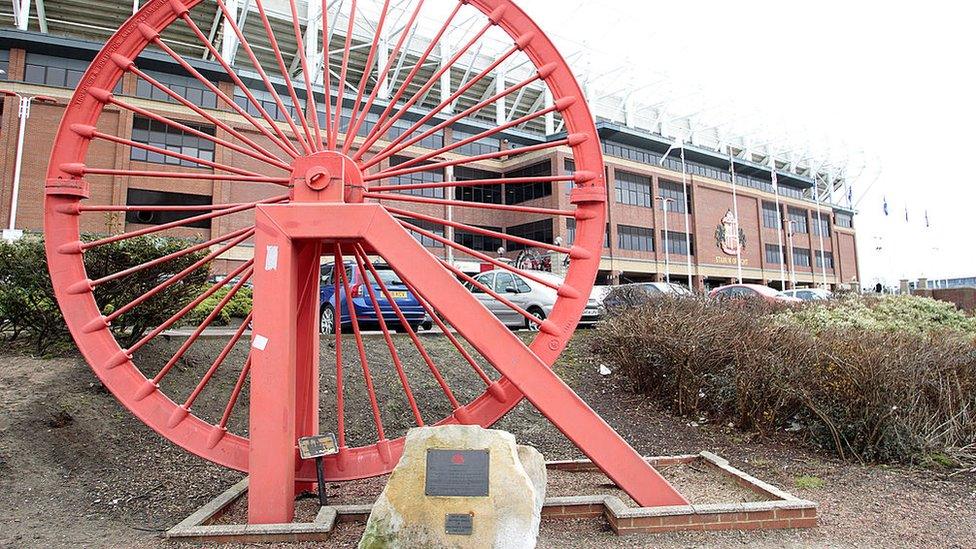Geothermal energy: Sunderland mine scheme moves forward
- Published

Exploratory work will be carried out beside the Stadium of Light, which stands on the site of Wearmouth Colliery
A scheme to heat homes and businesses using water from an old Wearside coal mine has taken a step forward.
Sunderland City Council planners have backed exploratory drilling at the site of the former Wearmouth Colliery, near the Stadium of Light.
If the scheme ultimately proves viable, naturally heated water would be distributed to nearby properties via a network of underground pipes.
The council said harnessing geothermal energy could help cut people's bills.
The pilot scheme approved by the council's planning and highways committee will investigate whether mine workings can be accessed by borehole drilling.
The proposed test site is the former fan zone next to the stadium, as well as a small section of ground nearby, but site hoardings and safety measures are planned to reduce disruption to Sunderland Football Club and match-goers.
'Stable energy source'
The location of the two pilot boreholes, at the south-east corner of the stadium's car park off Millennium Way, has been guided by the Coal Authority.
A report prepared by planning officers said site operations may happen on the same day as events at the stadium but drilling and related activities would stop ahead of crowds gathering for football matches or large-scale events.
The committee report said potential noise and vibration issues had been "carefully considered" and there were "unlikely" to be any significant impacts.
Councillors were told the benefits of heat networks include carbon efficiency and the production of a "stable and cost-effective energy source".
The proposals for exploratory works won unanimous support from the committee, the Local Democracy Reporting Service said.
Working hours are proposed to be 08:00 to 18:00 Monday to Friday and 08:00 to 12:00 on Saturdays, although "pumping testing" will operate 24 hours a day.
The works are expected to take about a year, with the site to be "reinstated to its original condition" upon their completion.

Follow BBC North East & Cumbria on Twitter, external, Facebook, external and Instagram, external. Send your story ideas to northeastandcumbria@bbc.co.uk, external.
Related topics
- Published23 November 2022
